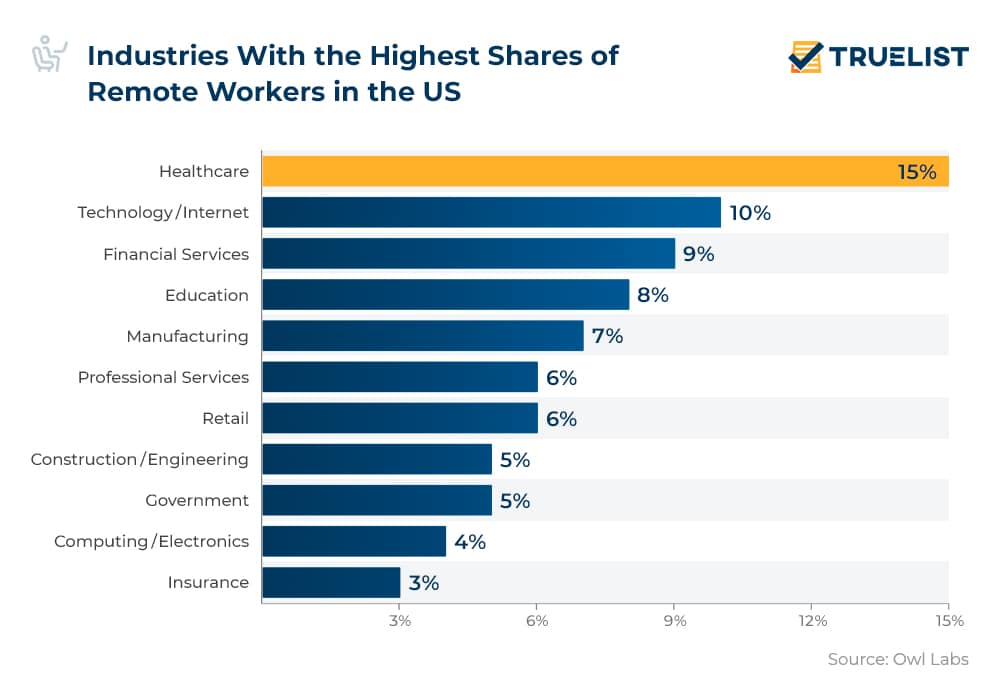Why Remote Work is Here to Stay
The shift towards remote work has been gaining momentum over the past decade, and it’s clear that this trend is here to stay. With the advancement of technology and the rise of digital communication tools, it’s become easier for people to work from anywhere, at any time. The benefits of remote work are numerous, including increased flexibility, reduced commuting time, and improved work-life balance. As a result, more and more companies are embracing remote work, and the demand for remote workers is on the rise.
According to a recent survey, 73% of teams will have remote workers by 2028, and the global remote work market is expected to reach $4.8 billion by 2025. This growth is driven by the need for businesses to stay competitive, improve productivity, and attract top talent. Remote work provides employees with the autonomy to work in a setting that suits them best, leading to increased job satisfaction and reduced turnover rates.
As the remote job market continues to grow, it’s essential to understand the most in-demand remote jobs and the skills required to succeed in these roles. From tech and marketing to customer support and writing, there are numerous opportunities for remote workers to find fulfilling and challenging careers. In this article, we’ll explore the most sought-after remote job categories, the skills and qualifications required, and provide tips on how to land a remote job.
With the rise of remote work, it’s clear that the traditional 9-to-5 office setup is no longer the only option. As technology continues to advance, we can expect to see even more innovative solutions for remote work, making it easier for people to work from anywhere and achieve a better work-life balance. Whether you’re a seasoned remote worker or just starting out, understanding the most in-demand remote jobs and the skills required to succeed is crucial for success in today’s digital age.
Highly Sought-After Remote Careers: What Employers are Looking For
As the remote job market continues to grow, certain careers are in higher demand than others. Employers are looking for skilled professionals who can excel in a remote work setup, and some of the most in-demand remote job categories include tech, marketing, and customer support. These roles require a unique set of skills and qualifications, and understanding what employers are looking for can help job seekers stand out in a competitive market.
In the tech industry, remote workers with expertise in cloud computing, cybersecurity, and data analytics are highly sought after. Employers are looking for professionals with strong technical skills, as well as the ability to work independently and communicate effectively with team members. In marketing, remote workers with experience in digital marketing, social media management, and content creation are in high demand. Employers are looking for professionals who can develop and implement effective marketing strategies, as well as analyze and report on campaign results.
Customer support is another area where remote workers are in high demand. Employers are looking for professionals with excellent communication skills, as well as the ability to troubleshoot and resolve customer issues. Remote customer support workers must be able to work independently, think critically, and provide top-notch service to customers. In addition to these skills, employers are also looking for professionals with experience in software applications, such as CRM systems and helpdesk tools.
Other in-demand remote job categories include writing, graphic design, and web development. Employers are looking for professionals with strong creative skills, as well as the ability to work independently and meet deadlines. In writing, remote workers with experience in content creation, copywriting, and editing are in high demand. In graphic design, employers are looking for professionals with expertise in visual design, branding, and digital media. In web development, remote workers with experience in coding, web design, and e-commerce are highly sought after.
Overall, the most in-demand remote jobs require a unique set of skills and qualifications. Employers are looking for professionals who can excel in a remote work setup, and understanding what they’re looking for can help job seekers stand out in a competitive market. By developing the skills and qualifications required for these roles, remote workers can increase their chances of landing a job and advancing their careers.
How to Land a Remote Job: Tips and Strategies
With the rise of remote work, finding a remote job can be a competitive process. However, by creating a strong online presence, networking with remote professionals, and tailoring your resume and cover letter, you can increase your chances of landing a remote job. Here are some tips and strategies to help you get started.
First, create a strong online presence by building a professional website or blog. This will allow you to showcase your skills, experience, and portfolio to potential employers. Make sure your website is easy to navigate, visually appealing, and optimized for search engines. Additionally, establish a strong presence on social media platforms, such as LinkedIn, Twitter, and Facebook, to connect with remote professionals and stay up-to-date on industry news.
Networking is also crucial when it comes to finding a remote job. Attend virtual conferences, join online communities and forums, and connect with remote professionals on social media. This will allow you to build relationships, learn about job opportunities, and stay informed about industry trends. You can also join remote work platforms, such as We Work Remotely, Remote.co, and FlexJobs, to access a wide range of remote job listings.
When applying for remote jobs, make sure your resume and cover letter are tailored to the specific job and company. Highlight your relevant skills, experience, and achievements, and explain how you can contribute to the company’s success. Use keywords from the job listing to help your application pass through applicant tracking systems (ATS) and catch the eye of the hiring manager.
Another important aspect of finding a remote job is to be proactive and persistent. Don’t wait for opportunities to come to you – create your own. Reach out to companies you’re interested in, even if they’re not advertising remote job openings. Offer to work on a freelance or contract basis, or propose a remote work arrangement. This will show your initiative and willingness to take on new challenges.
Finally, be prepared for remote job interviews by researching the company, practicing your responses to common interview questions, and preparing any materials you may need, such as a portfolio or references. Use video conferencing tools, such as Zoom or Skype, to conduct virtual interviews, and make sure you have a stable internet connection and a quiet, distraction-free workspace.
Top Remote Job Titles and Their Average Salaries
As the remote job market continues to grow, it’s essential to understand the most in-demand remote job titles and their average salaries. This information can help job seekers navigate the market and make informed decisions about their careers. Here are some of the top remote job titles and their average salaries:
1. Software Engineer: $105,000 – $140,000 per year
Software engineers are in high demand, and remote job opportunities are plentiful. With expertise in programming languages like Java, Python, and C++, software engineers can work on a wide range of projects, from mobile app development to cloud computing.
2. Marketing Manager: $80,000 – $120,000 per year
Marketing managers are responsible for developing and implementing marketing strategies for companies. With a strong understanding of digital marketing, marketing managers can work remotely and help companies reach their target audiences.
3. Customer Support Specialist: $40,000 – $60,000 per year
Customer support specialists are the face of a company, providing assistance and support to customers via phone, email, or chat. With excellent communication skills and a strong understanding of customer service principles, customer support specialists can thrive in a remote work environment.
4. Data Scientist: $100,000 – $140,000 per year
Data scientists are in high demand, and remote job opportunities are available in a wide range of industries. With expertise in data analysis, machine learning, and programming languages like R and Python, data scientists can work on complex projects and help companies make data-driven decisions.
5. Content Writer: $40,000 – $60,000 per year
Content writers create engaging and informative content for companies, including blog posts, articles, and social media posts. With a strong understanding of writing principles and a portfolio of work, content writers can work remotely and help companies develop their brand voice.
6. UX Designer: $80,000 – $110,000 per year
UX designers create user-centered design solutions for companies, including websites, mobile apps, and software applications. With expertise in design principles, human-computer interaction, and programming languages like HTML and CSS, UX designers can work remotely and help companies develop intuitive and user-friendly products.
These are just a few examples of the top remote job titles and their average salaries. Remember that salaries can vary widely depending on factors like location, experience, and industry.
The Skills You Need to Succeed in a Remote Work Environment
Remote work requires a unique set of skills and qualities that enable individuals to work effectively and efficiently in a remote setting. While some skills may be inherent, others can be developed and improved through practice and experience. Here are some of the essential skills required to succeed in a remote work environment:
Self-motivation is critical in a remote work setup, as individuals need to be able to manage their time and prioritize tasks without direct supervision. This requires discipline, focus, and a strong work ethic. Remote workers must also be able to communicate effectively with colleagues and clients, often through digital channels such as email, phone, or video conferencing.
Time management is another essential skill for remote workers, as they need to be able to balance multiple tasks and deadlines while working independently. This requires strong organizational skills, attention to detail, and the ability to prioritize tasks effectively. Remote workers must also be able to adapt to changing circumstances and priorities, often with minimal notice.
Communication skills are vital in a remote work environment, as individuals need to be able to convey complex ideas and information clearly and concisely. This requires strong written and verbal communication skills, as well as the ability to use digital communication tools effectively. Remote workers must also be able to build and maintain relationships with colleagues and clients, often through digital channels.
Technical skills are also essential for remote workers, as they need to be able to use a range of digital tools and platforms to perform their job functions. This may include proficiency in software applications such as Microsoft Office, Google Suite, or Adobe Creative Cloud, as well as experience with project management tools such as Asana, Trello, or Basecamp.
Finally, remote workers need to be able to manage their physical and mental health while working remotely. This requires a range of skills, including the ability to create a healthy work-life balance, manage stress and anxiety, and maintain a regular exercise routine. Remote workers must also be able to create a comfortable and ergonomic workspace, often in a home office or co-working space.
By developing these essential skills, individuals can succeed in a remote work environment and thrive in a range of roles and industries. Whether you’re a seasoned remote worker or just starting out, it’s essential to continually develop and improve your skills to stay competitive in the modern job market.
Remote Job Opportunities in Emerging Industries
As technology continues to advance and new industries emerge, remote job opportunities are becoming increasingly available. Some of the most exciting emerging industries that are creating new remote job opportunities include renewable energy, cybersecurity, and healthcare technology. These industries are not only creating new job opportunities but also driving innovation and growth in the global economy.
Renewable energy is one of the fastest-growing industries in the world, with solar and wind energy becoming increasingly popular. Remote job opportunities in this industry include roles such as solar panel installation, wind turbine maintenance, and energy efficiency consulting. These jobs require a strong understanding of renewable energy systems and technologies, as well as excellent problem-solving and communication skills.
Cybersecurity is another emerging industry that is creating new remote job opportunities. As technology advances and more businesses move online, the need for cybersecurity experts is becoming increasingly important. Remote job opportunities in this industry include roles such as cybersecurity analyst, penetration tester, and incident responder. These jobs require a strong understanding of computer systems and networks, as well as excellent analytical and problem-solving skills.
Healthcare technology is another emerging industry that is creating new remote job opportunities. With the increasing use of technology in healthcare, remote job opportunities are becoming available in areas such as telemedicine, health informatics, and medical writing. These jobs require a strong understanding of healthcare systems and technologies, as well as excellent communication and analytical skills.
Other emerging industries that are creating new remote job opportunities include fintech, e-learning, and digital marketing. These industries are driving innovation and growth in the global economy, and remote job opportunities are becoming increasingly available. Whether you’re interested in renewable energy, cybersecurity, or healthcare technology, there are many exciting remote job opportunities available in emerging industries.
To succeed in these emerging industries, it’s essential to have the right skills and qualifications. This may include a degree in a relevant field, as well as certifications and training in specific technologies and systems. Additionally, excellent communication and problem-solving skills are essential for success in these industries.
By exploring remote job opportunities in emerging industries, you can find a career that is not only fulfilling but also drives innovation and growth in the global economy. Whether you’re just starting out or looking to transition to a new career, there are many exciting remote job opportunities available in emerging industries.
Overcoming the Challenges of Remote Work
While remote work offers many benefits, it also presents several challenges that can impact productivity, job satisfaction, and overall well-being. Some of the most common challenges faced by remote workers include isolation, distractions, and burnout. In this section, we’ll explore these challenges and offer tips and strategies for overcoming them.
Isolation is a common challenge faced by remote workers, particularly those who work from home. Without the social interaction and human connection that comes with working in an office, remote workers can feel disconnected and alone. To overcome this challenge, remote workers can make an effort to stay connected with colleagues and friends through video conferencing, phone calls, and instant messaging. They can also join online communities and forums related to their industry or profession to connect with others who share similar interests and experiences.
Distractions are another challenge faced by remote workers. Without the structure and accountability that comes with working in an office, remote workers can easily get sidetracked by personal tasks, social media, and other distractions. To overcome this challenge, remote workers can create a dedicated workspace that is free from distractions, establish a routine and schedule, and use tools and apps that help them stay focused and on track.
Burnout is a common challenge faced by remote workers, particularly those who work long hours or have a heavy workload. Without the boundaries and separation that comes with working in an office, remote workers can easily become overwhelmed and exhausted. To overcome this challenge, remote workers can prioritize self-care, take regular breaks, and establish a healthy work-life balance. They can also set realistic goals and expectations, delegate tasks when possible, and seek support from colleagues and managers when needed.
In addition to these challenges, remote workers may also face technical issues, communication breakdowns, and difficulties with time management. To overcome these challenges, remote workers can invest in reliable technology, establish clear communication channels, and use tools and apps that help them manage their time and prioritize tasks.
By acknowledging and addressing these challenges, remote workers can overcome the obstacles that stand in their way and achieve success and fulfillment in their careers. Whether you’re a seasoned remote worker or just starting out, it’s essential to be aware of the challenges that come with remote work and to develop strategies for overcoming them.
Creating a Productive Remote Work Environment
Creating a productive remote work environment is crucial for success in a remote job. A well-designed workspace can improve productivity, job satisfaction, and overall well-being. In this section, we’ll provide advice on how to set up a productive remote work environment, including tips on ergonomics, technology, and minimizing distractions.
Ergonomics is an essential aspect of a productive remote work environment. A comfortable and ergonomic workspace can help prevent injuries, reduce eye strain, and improve posture. When setting up your workspace, consider investing in an ergonomic chair, a standing desk, and a keyboard tray. These simple investments can make a significant difference in your comfort and productivity.
Technology is also a critical component of a productive remote work environment. A reliable computer, a high-speed internet connection, and a range of software applications are essential for most remote jobs. Consider investing in a laptop or desktop computer, a tablet or smartphone, and a range of software applications that can help you stay organized and focused.
Minimizing distractions is another key aspect of a productive remote work environment. When working from home, it can be easy to get sidetracked by personal tasks, social media, and other distractions. To overcome this challenge, consider creating a dedicated workspace that is free from distractions, establishing a routine and schedule, and using tools and apps that help you stay focused and on track.
In addition to these tips, consider the following advice for creating a productive remote work environment:
Invest in a noise-cancelling headset or earbuds to minimize background noise and distractions.
Use a project management tool or app to stay organized and focused.
Establish a routine and schedule to help you stay on track and avoid procrastination.
Take regular breaks to stretch, move around, and rest your eyes.
Consider investing in a virtual private network (VPN) to protect your data and maintain your online security.
By following these tips and creating a productive remote work environment, you can improve your productivity, job satisfaction, and overall well-being. Whether you’re a seasoned remote worker or just starting out, a well-designed workspace is essential for success in a remote job.







